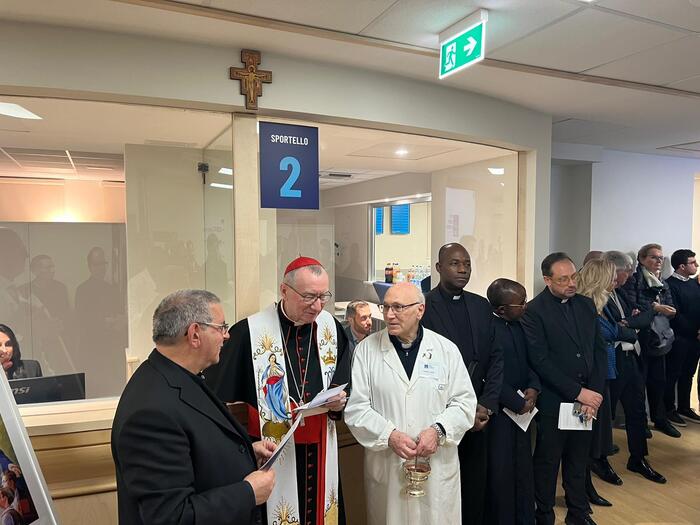In 1996, when he was working around the clock to finish his PhD thesis in Philosophy and Symbolic Systems, Atocha Aliseda began to lose strength in his hands.
For months he had been typing nonstop in an office at the Stanford Center for the Study of Language and Information, feet almost dangling from the chair and arms up to reach a desk too big for his stature, until a moment came. in which he was not able to lift a cup.
After several consultations, the doctors diagnosed him with “repetitive stress syndrome”, a way of defining his problem by what they saw: a set of symptoms caused by repeated movements.
He was also diagnosed with fibromyalgia, which is another way of naming a disease by its effects rather than its causes: chronic pain in the muscles and fibrous tissue.
While doctors were searching for an explanation for her ailments, she was trying to move forward with a thesis that would be titled
Searching for an Explanation: Abduction in Logic, Philosophy of Science, and Artificial Intelligence.
Perhaps in those months in which she was practically unable to use a keyboard, the impulse was born that would lead her a decade later to put on a white coat every Friday to attend the discussion of clinical cases at the National Institute of Neurology and Neurosurgery of Mexico.
But at 32-year-old Stanford, her research focused not on how doctors reason, but on the logic of abduction itself: what Aliseda has described as "the reasoning process by which explanations are constructed for surprising observations, that is, for novel or anomalous events ”.
The logic of discovery and scientific explanation, a central issue in his academic journey.
For years, Atocha Aliseda - who was initially trained in mathematics - has worked on the development of logical and computational models of abduction.
But in 2006, after giving a talk on abductive reasoning at a seminar, his research would add a new dimension.
At the end of his presentation, a medical historian approached him and said: “Hey, what you do is diagnosis.
The medical diagnosis is like that.
Don't you want to come work with us? ”.
This is how she began attending clinical sessions where complicated cases were discussed and working with the historian and a neurologist to reconstruct the journey of some difficult diagnoses.
In 2008 they published a first article about their work:
Medicine and logic: the diagnostic process in neurology.
However, when it was translated into English and submitted to a prestigious philosophy of science journal, the article was rejected in record time.
They then asked other colleagues to read it to understand what had happened.
"And the conclusion of several people was: this is not an article or philosophy, or logic, much less medicine.
They will not accept it anywhere.
And that's the problem with what I do, ”he explains.
In 2017, in addition to her work as a teacher and researcher at the National Autonomous University of Mexico, Atocha Aliseda began to organize a Seminar on Epistemology of Health Sciences, a space that has allowed her to add perspectives and dedicate more time to what she it has become one of his main interests: the application of abductive reasoning in medical diagnosis.
In the world, with the exception of the Round Table on the Philosophy of Medicine —an open space for scientists interested in these topics—, there is not much background to what the Mexican specialist does.
And its ambition is not to produce knowledge to consume within academic spaces, but to put the disciplines to be nurtured for practical purposes.
"For that there is no methodology on how to work, but you do have to start by generating a common language," he says one afternoon at the end of January in the Plaza de la Conchita in Coyoacán, one of the most emblematic neighborhoods of Mexico City.
Atocha Aliseda wears a mask with an embroidered raccoon that she bought from a Zapatista community in Chiapas.
He says that a fellow researcher who developed a covid antigen test advised the Zapatistas to make them and they turned out so well that they are exhausted.
Near this square, on a corner, is the El Convento restaurant, where the epistemologist's parents had their first date.
They had met in a hospital: her mother worked as a clerk and her father was a pediatrician.
"The truth is that it marks you," he says.
There she recognizes one of the roots of her interest in thinking about medicine: every afternoon that she listened to her father questioning his patients on the phone would lead her years later to reflect on the process that went from those questions to a medical diagnosis.
In a less obvious way, there is also an invisible line that connects her research with the fascination that Agatha Christie novels caused her as a child.
Doctors, Aliseda explained, like detectives, propose a possible explanation for a fact based on signs (symptoms) and from there they look for information to corroborate their hypothesis.
A week after that meeting in Coyoacán, he would receive the news of the death of his mother, who had long suffered from a lung disease. For 10 years, to deal with her mother's health problem, she had had to coordinate with different specialists (pulmonologist, cardiologist, endocrinologist, orthopedist) to make decisions. The link between his research and his personal life had become a daily practice and a confirmation of the vital nature of his search: for Atocha Aliseda, abstraction has always been a way of engaging with the world, not avoiding it.












/cloudfront-eu-central-1.images.arcpublishing.com/prisa/KMEYMJKESBAZBE4MRBAM4TGHIQ.jpg)


